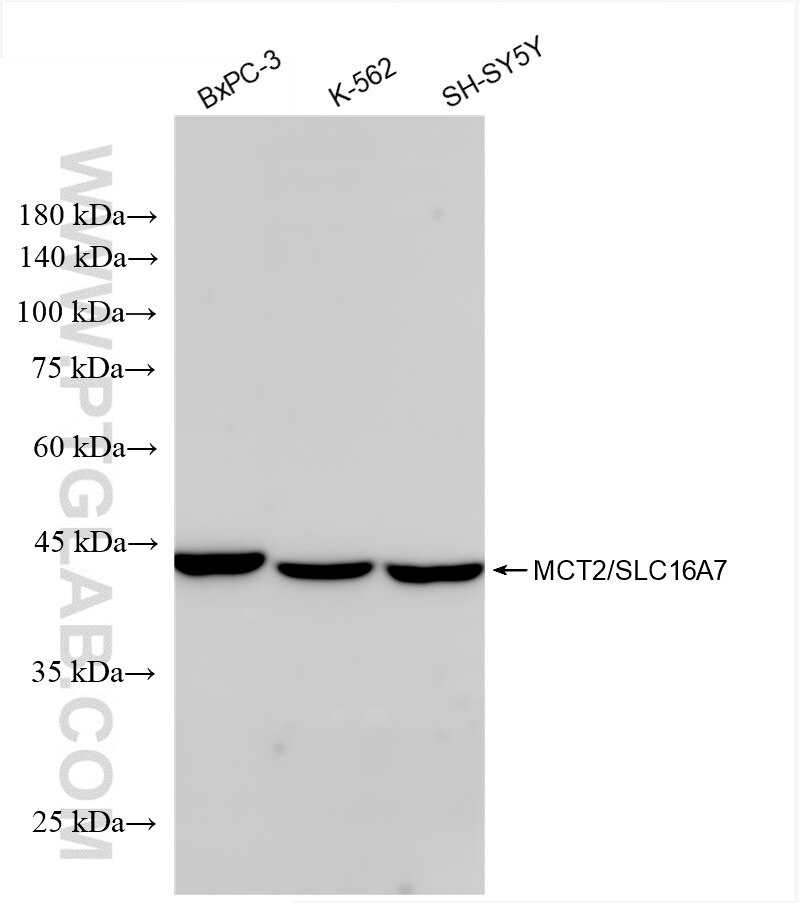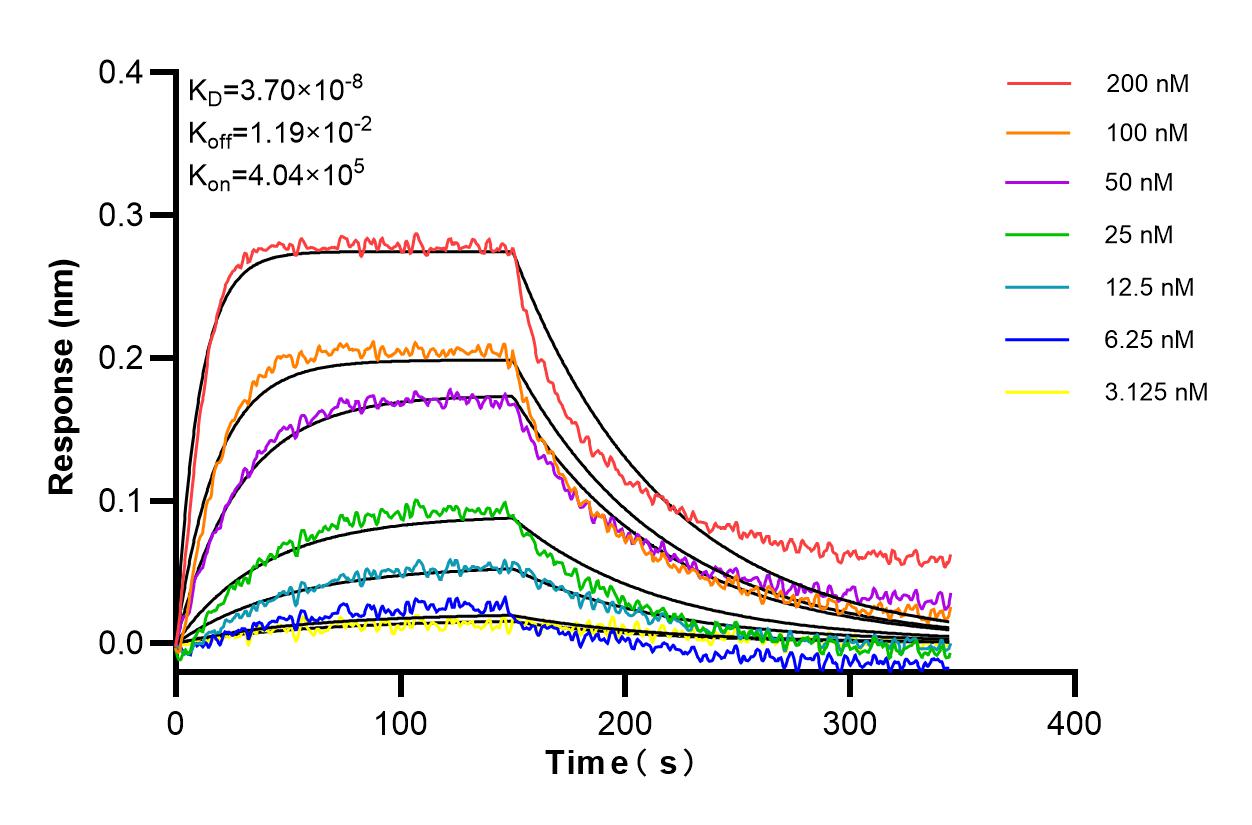Validation Data Gallery
Tested Applications
| Positive WB detected in | BxPC-3 cells, K-562 cells, SH-SY5Y cells |
Recommended dilution
| Application | Dilution |
|---|---|
| Western Blot (WB) | WB : 1:1000-1:6000 |
| It is recommended that this reagent should be titrated in each testing system to obtain optimal results. | |
| Sample-dependent, Check data in validation data gallery. | |
Product Information
85145-3-RR targets MCT2/SLC16A7 in WB, ELISA applications and shows reactivity with human samples.
| Tested Reactivity | human |
| Host / Isotype | Rabbit / IgG |
| Class | Recombinant |
| Type | Antibody |
| Immunogen |
CatNo: Ag14201 Product name: Recombinant human SLC16A7 protein Source: e coli.-derived, PGEX-4T Tag: GST Domain: 433-478 aa of BC030693 Sequence: AKERKEENARQKTRESEPLSKSKHSEDVNVKVSNAQSVTSERETNI 相同性解析による交差性が予測される生物種 |
| Full Name | solute carrier family 16, member 7 (monocarboxylic acid transporter 2) |
| Calculated molecular weight | 478 aa, 52 kDa |
| Observed molecular weight | 40-52 kDa |
| GenBank accession number | BC030693 |
| Gene Symbol | MCT2 |
| Gene ID (NCBI) | 9194 |
| Conjugate | Unconjugated |
| Form | |
| Form | Liquid |
| Purification Method | Protein A purification |
| UNIPROT ID | O60669 |
| Storage Buffer | PBS with 0.02% sodium azide and 50% glycerol{{ptg:BufferTemp}}7.3 |
| Storage Conditions | Store at -20°C. Stable for one year after shipment. Aliquoting is unnecessary for -20oC storage. |
Background Information
SLC16A7, also named MCT2, is a proton-coupled monocarboxylate transporter catalyzing the rapid transport across the plasma membrane of many monocarboxylates. It has been reported that SLC16A7 is the primary monocarboxylate transporter in Purkinje cells and can be detected in the brain, cerebellum, liver, and kidney, but not in vascular smooth muscle cells, pericytes, endothelium, heart, lung, or stomach. There are some isoforms of SLC16A7 with bands around 52 kDa and 40-45 kDa in SDS-PAGE. The 80 kDa protein might be a dimer, similar to the papers published. (PMID: 9482213, 15749979, 11291733, 16901736)
Protocols
| Product Specific Protocols | |
|---|---|
| WB protocol for MCT2/SLC16A7 antibody 85145-3-RR | Download protocol |
| Standard Protocols | |
|---|---|
| Click here to view our Standard Protocols |


